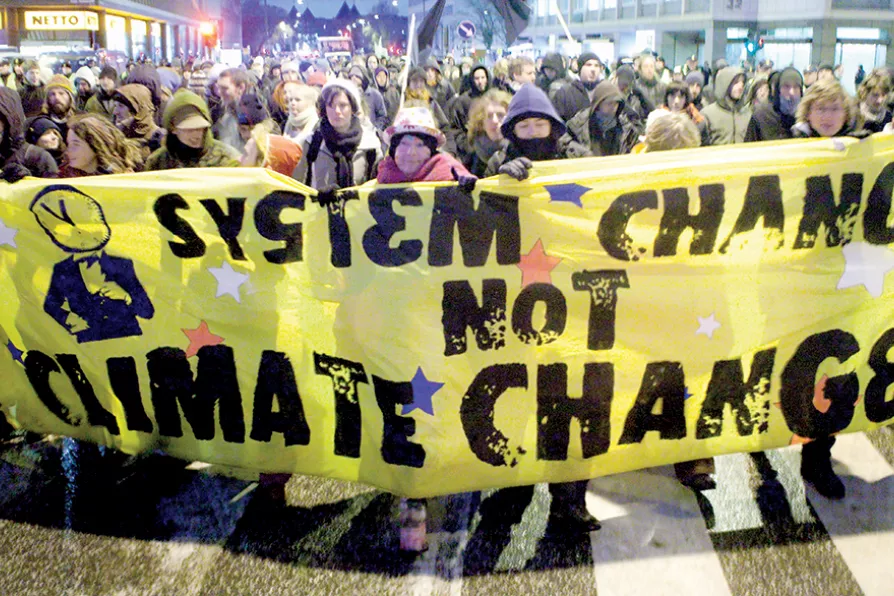Labour prospects in May elections may be irrevocably damaged by Birmingham Council’s costly refusal to settle the year-long dispute, warns STEVE WRIGHT

 MESSAGE STILL UNHEEDED: Protest at UN Climate Change Conference - COP15 - Copenhagen, Denmark in 2009
[Kris Krug/flickr/CC]
MESSAGE STILL UNHEEDED: Protest at UN Climate Change Conference - COP15 - Copenhagen, Denmark in 2009
[Kris Krug/flickr/CC]
IN ANY crisis Tony Benn was always the best person to turn to for an answer. And so it is now.
Europe is faced with the resurgent success of far-right parties. Both the left and centre right struggle for answers. Meanwhile, climate scientists report that we had the world’s warmest May on record (and the 12th consecutive month doing so).
Greece closed its schools as temperatures raced past 40°C. Florida faced 11 inches of rain in 24 hours, sweeping away all semblance of normal life. In Spain, from Murcia to Majorca, the same torrential downpours raced through their streets creating havoc.

As the dollar falters and US power turns predatory, Britain and Europe must abandon transatlantic illusions and build a collectivist alternative before the system implodes, writes ALAN SIMPSON

The collapse of the Atlantic Meridional Overturning Circulation poses an existential threat — but do today’s politicians have the capacity to deliver the more resilient and sustainable economics of tomorrow, wonders ALAN SIMPSON

ALAN SIMPSON warns of a dystopian crossroads where Trump’s wrecking ball meets AI-driven alienation, and argues only a Green New Deal can repair our fractured society before techno-feudalism consumes us all












